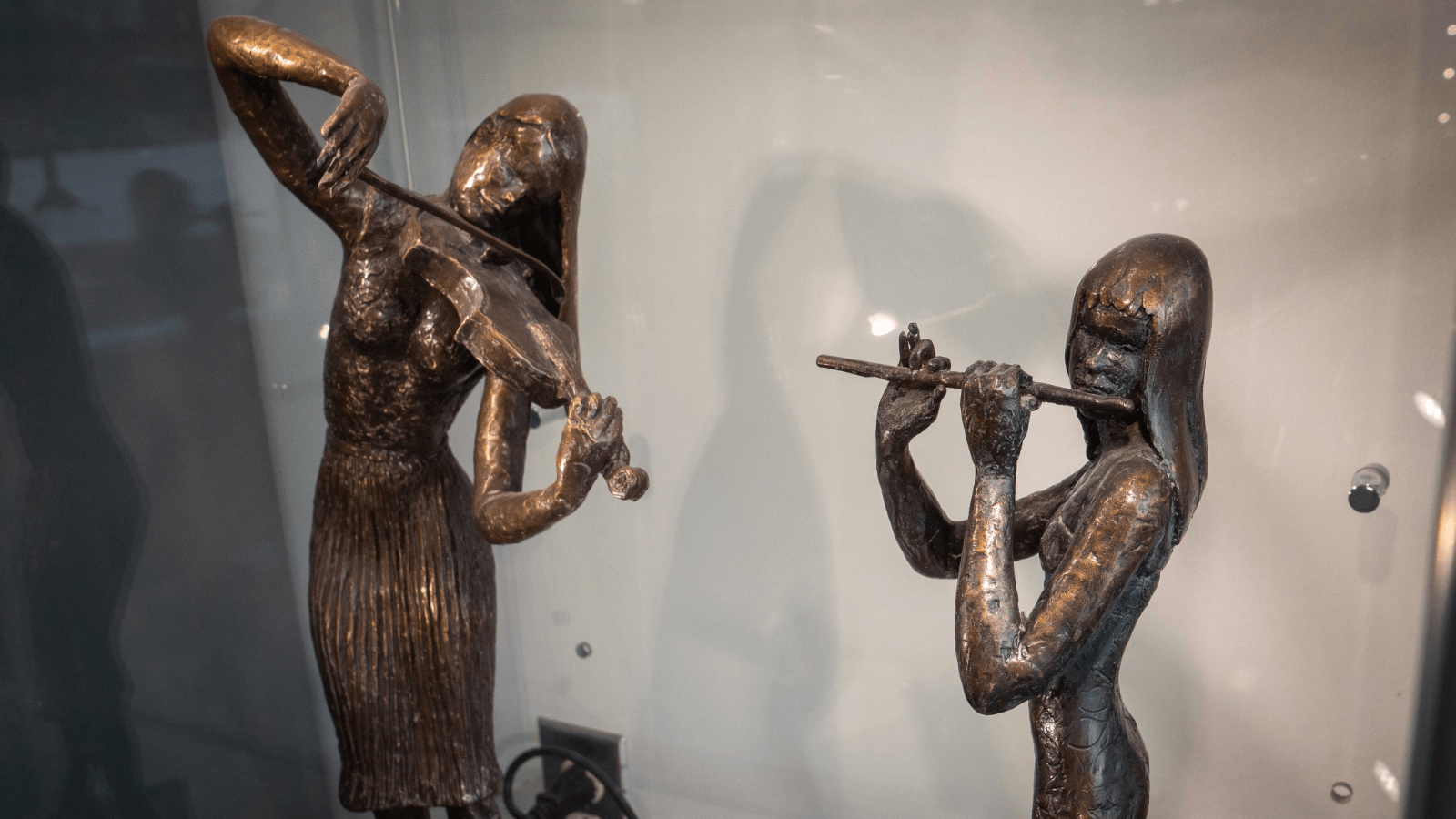Department of Arts, Culture and Technology

About ACT at Clarkson
Clarkson students build tomorrow’s world through their ideas and innovations. To graduate well-rounded professionals ready to tackle challenges from multiple angles, ACT courses emphasize the following:
Creative Thought
In conversations and debates, learn to defend your stance on artistic movements, films, theories, historical events, literature and other topics.
Interdisciplinary Scholarship
Clarkson students and faculty regularly bounce hypotheses off each other and delve into disciplinary overlap. Integral to a Clarkson education, ACT both explores the interconnectedness among the arts, humanities and social sciences and where these areas influence STEM, business and healthcare to power society’s creative endeavors and culture at large.
Small Class Sizes
No one is a number at Clarkson, and ACT classes illustrate this aspect of our campus. As you express your unique viewpoints, you’ll engage and develop connections with equally enthusiastic students and expert faculty-scholars.
Unconventional Classes
These intersections result in a number of courses found nowhere else — for example, in Wargaming, Demons and Witches, and American Political Ideas in Literature and Film — and expose students to both new and emerging media.
Attention Incoming Students!
Wondering about UNIV 190, the first-semester course required for all first-year students at Clarkson?
This vital part of Clarkson’s Common Core aims to hone student skills in reading, writing, and critical thinking. UNIV 190 also provides you with an opportunity for small-sized, discussion-based classes on big-picture themes important to our daily lives outside the classroom.
Get more details here.
While we are not known for political science, I feel like we should be. The professors are outstanding, the coursework is interesting and there are so many opportunities on campus. College is absolutely what you make it.
Celia Darling ‘24
All Arts, Culture and Technology Minors
Featured Class: Wargaming
Gaming isn’t solely for enjoyment: it’s a novel way to learn about history and plays a role in modern military and defense strategies. Professor Alastair Kocho-Williams’ course covers this niche industry from all angles — evolution, principles, styles, formats and purpose — and requires students to design and test their own educational wargame.
Experiential and Real-World Opportunities
See how your diverse interests work together to transform our immediate community and beyond.
Work as a Teaching or Research Assistant
A Clarkson education is all about doing while absorbing new information from established professionals. On campus, ACT students can serve as teaching assistants in discussion-based courses or serve as research assistants on cutting-edge scholarly projects.
New York State Assembly Internship Program
Get a front-row seat to the legislative process. Undergraduates accepted into the prestigious Session Internship directly participate in state government and are awarded a stipend plus a full semester of credit.
Intern at Local Museums
Museum exhibits start with curating artifacts and come to life through storytelling, often incorporating virtual reality and mobile technologies. As interns, ACT students get a behind-the-scenes look at this process and how communication, history, science and digital art can converge.
ACT Faculty Research
- Ancient graffiti
- Applied ethics
- History of neurology
- Literature of varied countries and cultures
- New media installation art
- Pedagogy of active learning
- Russian and Soviet history
- Social injustices in health
- Teaching through gaming
- Translation
Mara’s Bold Leap: Creativity Meets Entrepreneurship
After graduating high school early, Mara embraced a pivotal shift: leaving behind studio art and stepping into the world of innovation and entrepreneurship at Clarkson University’s Reh School of Business.
At Clarkson, she found a community that values both creative thinking and practical business acumen — one that invited her to design, build and lead rather than simply follow. With hands-on learning, mentorship from faculty, and real challenges to tackle, Mara gained the confidence to chart her own future.
Today, she is preparing for a career in interior design and entrepreneurship, proof that when you combine imagination with business innovation, bold outcomes follow. This video shares her journey, her moments of transformation and how you too can harness your creative strengths within a business framework.
